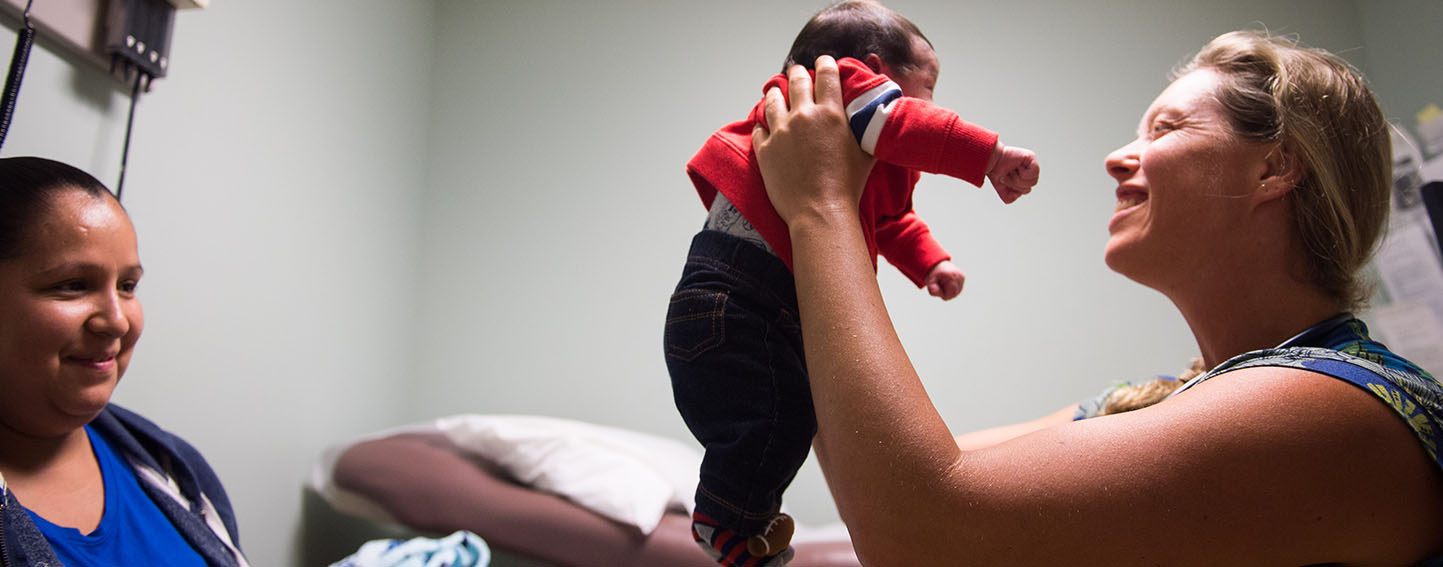
This article was originally published on October 18, 2019, in the Health Affairs Blog and is reprinted with permission.
Shortly before it was set to take effect last Tuesday, five federal districts courts, sitting in Washington (PDF), California, Baltimore, Cook County and New York City issued preliminary injunctions against the Trump Administration’s new public charge rule, halting at least for now a rule that was widely expected to reduce immigrants’ access to health care, place new burdens on safety-net providers, and jeopardize public health, especially in immigrant communities.
Regulatory Background
The rule at issue would have redefined a longstanding provision of the Immigration and Nationalization Act (INA). The provision allows the federal government to deny admission or a green card to non-citizens (excluding refugees, aslyees, and certain other groups granted special humanitarian status) who are “likely at any time to become a public charge.” Previously, that provision had been interpreted to apply only to non-citizens who were likely to be predominantly dependent on cash assistance or publicly funded long-term care. Past or future use of Medicaid or other non-cash benefits did not make someone a public charge.
The Department of Homeland Security (DHS) rule that was set to take effect on October 15 would have dramatically changed that definition, redefining public charge to mean a non-citizen who receives one or more of a specific set of public benefits, including cash assistance, Medicaid, Supplemental Nutrition Assistance Program benefits (food stamps), and housing support for 12 out of 36 months. Receipt of each benefit would count separately, so that receiving Medicaid and food stamps for one month would be treated as obtaining public benefits for two months. The rule also included some important exceptions. Receipt of Medicaid by pregnant women and children under 21 would not be considered. In addition, in accord with the statute, refugees, aslyees and certain other classes of non-citizens were exempt.
The rule also established a complex serious of factors that immigration officials were required to use to decide if an immigrant is likely to become a public charge in the future. Past receipt of Medicaid or other listed public benefits constituted a heavily weighted negative factor, as did having a serious medical condition without having medical insurance, or not being a full-time student or employed. Other negative factors included being under 18 or over 62, lack of English-language proficiency, or a poor credit score. Positive factors included income over 250% of the federal poverty level, or having private (non-subsidized) health insurance.
The Lawsuits
Shortly after the rule was published in the Federal Register on August 14, 2019, 22 states and local governments as well as many advocacy groups filed at least nine separate lawsuits. The challengers claimed that the rule exceeded DHS’ statutory authority, was promulgated in an arbitrary and capricious manner in violation of the Administrative Procedure Act (APA), discriminated against individuals with disabilities in violation of the Rehabilitation Act of 1973, and violated the Equal Protection Clause of the Constitution.
Jurisdiction
In response, the Department of Justice (DOJ) argued that cases were not appropriately before the courts because the harms were speculative and not particularized to the plaintiffs. The five federal courts that have ruled so far each disagreed, pointing in particular to the rule’s impact on uncompensated care and public health, as well as its impact on the mission of the private party plaintiffs. For example, in the case brought by the state of Washington and several other states, Judge Rosanna Malouf Peterson of the Eastern District of Washington noted that the plaintiffs had alleged that the rule would lead to loss of federal Medicaid funds, significant uncompensated costs, burdens to the doctor-patient relationship, reduced access to vaccinations, and increases in childhood poverty and food insecurity. In the Baltimore case, Judge Paul W. Grimm found that Casa de Maryland, an organization that offers social services and legal support to immigrant communities in Maryland, Washington, DC, Virginia, and Pennsylvania, had standing because the rule would frustrate the organization’s mission and force it to shift resources to respond to the rule’s impact on the families it serves.
The Merits: Awarding Preliminary Injunctions
Having found jurisdiction, each of the courts found that the plaintiffs were entitled to a preliminary injunction because they were likely to prove that the rule exceeded DHS’ statutory authority. For example, in cases brought by the City of San Francisco as well as the State of California and private organizations, Judge Phyllis Hamilton of the Northern District of California found that the rule departed from the provision’s “long-standing (sic) focus on the individual’s ability and willingness to work or otherwise support himself, and its longstanding allowance for short-term aid. . . .” Judge Grimm in Maryland likewise found that the rule departed from established precedent: “Congress also has rejected multiple attempts to define ‘public charge’ in the way that DHS now does through administrative rulemaking.”
In New York, Judge George Daniels agreed that the rule departed from the historical precedent, and noted that the defendants had failed to “articulate why they are changing the public charge definition, why this new definition is needed now, or why the definition set forth in the Rule — which has absolutely no support in the history of US immigration law — is reasonable.” Judge Daniels continued, “The Rule is simply a new agency policy of exclusion in search of a justification. It is repugnant to the American Dream of the opportunity for prosperity and success through hard work and upward mobility.” Judge Daniels added that because the US does not have an official language, it is “simply offensive to contend that English proficiency is a valid predictor of self-sufficiency,” and that because DHS had presented no reasonable basis for the rule, the plaintiffs’ Equal Protection claim was very strong.
In Washington, Judge Peterson emphasized that the rule departed from Congress’ intent as evident in not only the INA but other statutes, including the Personal Responsibility and Work Opportunity Reconciliation Act (PDF), which relate to immigrants’ access to public benefits. Judge Peterson added that DHS has no authority over Medicaid and had overstepped its place in assuming a role over public health, which has traditionally been left to the states.
Although the five judges agreed that the plaintiffs had met the standard necessary to obtain a preliminary injunction by showing that the rule exceeded DHS’ authority, they disagreed as to whether the rule likely violated the Rehabilitation Act, which prohibits federal agencies from discriminating against people with disabilities. Both Judges Peterson (Washington) and Daniels (New York) found that the rule likely violated that Act. In contrast, in California, Judge Hamilton concluded that because the rule did not discriminate “solely” based on disability, and the INA permitted health to be considered in the public charge determination, the plaintiffs were unlikely to succeed on their Rehabilitation Act claim. The other judges did not rule on this issue.
The judges also disagreed as to the appropriate scope of the preliminary injunction. Judges Peterson in New York and Daniels in Washington ruled that given the need for uniformity, the injunction should be nationwide. In California, Judge Hamilton held that Ninth Circuit precedent required her to limit the injunction to the states that were before her. Likewise, in Illinois, Judge Gary Feinerman limited the injunction to Illinois. However, because two other judges have now imposed a nationwide injunction, these limitations are, for the moment, of little consequence.
Momentous, but Not Definitive
Taken together, these rulings by five different federal judges strike a momentous blow to the Trump Administration’s efforts to reduce legal immigration and deter lawfully present immigrants from using public benefits. They are not, however, the end of the story. Almost certainly the Administration will appeal each decision, and the matter may well end up before the Supreme Court.
In addition, just before the courts issued their rulings, the State Department issued a new interim final rule (originally scheduled to take effect on October 15) to align the public charge determination undertaken in overseas consular offices with the definitions and criteria set forth in the now-enjoined DHS rule. For the moment, it appears that the State Department has not implemented the rule; whether it will do so shortly remains unclear. Also uncertain is the impact of the proclamation that President Trump issued last week purporting to require most immigrants seeking visas to enter the US to have health insurance. Although the Proclamation and the Interim Rule echo the public charge rule in treating lack of health insurance as a justification for keeping out noncitizens, these new initiatives were not before the courts that issued injunctions. Moreover, courts have generally given the executive branch more leeway in cases relating to overseas applicants seeking entry than in cases concerning the treatment of immigrants who are residing within the US.
Nevertheless, the courts’ decisions that the public charge rule was likely unlawful in part because of its public health consequences are of critical importance. Courts have now recognized what health care professionals and public health authorities have been stating: that the Administration’s efforts to reduce immigration by penalizing the use of health benefits jeopardizes the health of all Americans. Unfortunately, given the Administration’s continuing efforts to curb immigration through health-focused initiatives, the need to raise the alarm continues.
Disclosure: The author represented parties who submitted an amicus brief supporting the challenge to the public charge rule in the cases in Washington, New York and California. The author has no financial or personal interests affected by the public charge rule or the litigation concerning it.
Authors & Contributors

Wendy E. Parmet
Wendy E. Parmet is the George J. and Kathleen Waters Matthews Distinguished Professor of Law and Professor of Public Policy and Urban Affairs at Northeastern University. The director of Northeastern’s Center on Health Policy and Law, she is the author or coauthor of numerous books on health law, public health, and health care, as well as law and ethics associate editor of the American Journal of Public Health.

Jessica Brandi Lifland
Jessica Brandi Lifland is a freelance photographer, instructor of journalism at City College of San Francisco, and mother. Her work with publications and nonprofits such as Operation Smile, Tostan, and the California Health Care Foundation has taken her all over the world, including West Africa, the Middle East, Kosovo, Burma, Haiti, and South America.
For two decades she has been photographing the National Cowboy Poetry Gathering and has been working on a long-term project documenting the lives of the cowboy poets of the American West in affiliation with the Western Folklife Center. She plans to make her project into a book.


